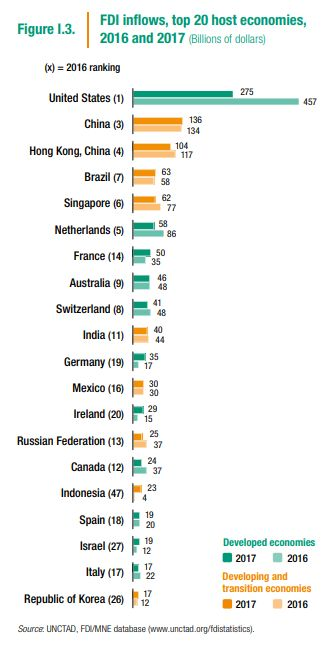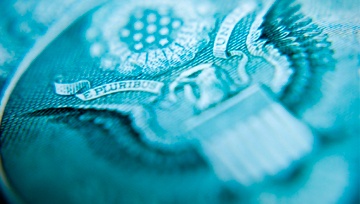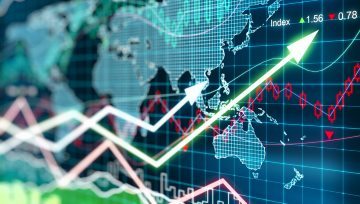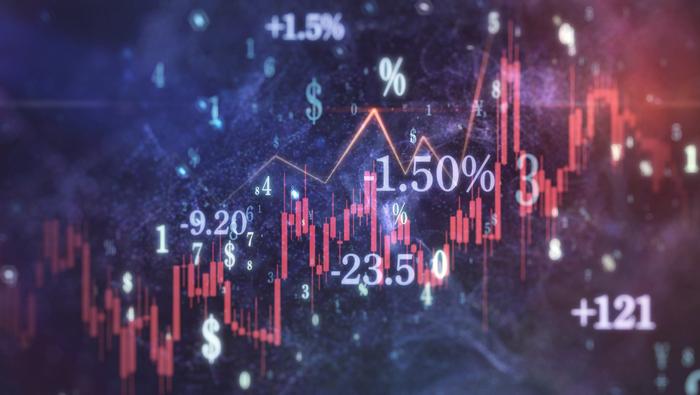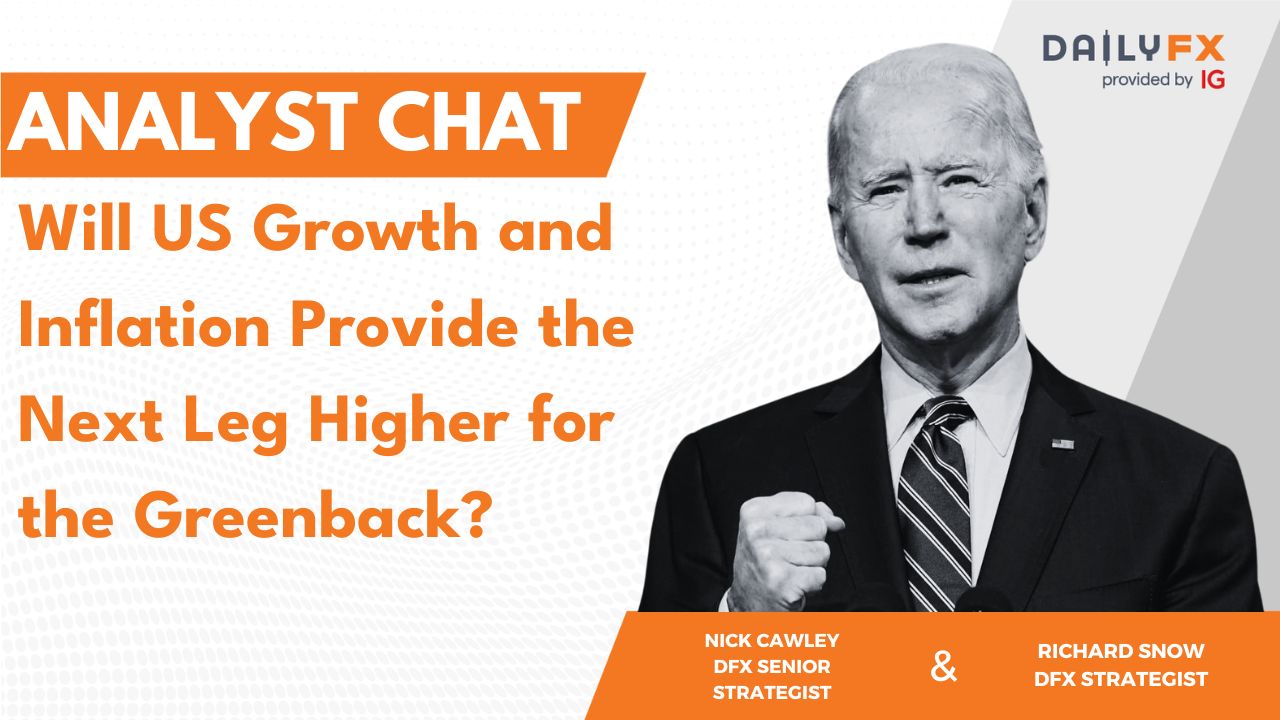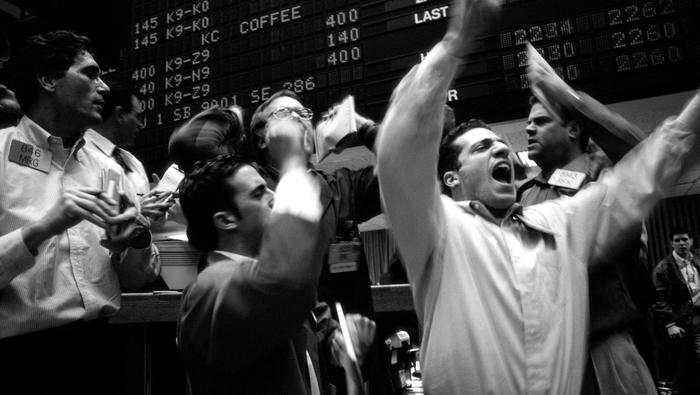Talking Points:
- The US Dollar is the most heavily used currency in the world by a very wide margin, but this position isn't permanent
- Trade wars provoked and escalated by the United States could readily alter the flow of capital away from the US system
- Given the aggressive US actions against its peers and a collective response, the Dollar risks a systemic reduction in its use
See how retail traders are positioning in EUR/USD and other key Dollar pairs. Retail traders are much shorter-term focused in their positions, giving important contrast to long-term risks. See the evolution of positioning using the DailyFX speculative positioning data on the sentiment page.
The US Dollar Isn't Infallible, but It Is Robust
There is little doubt that the US Dollar is robust. The currency has grown to be an undisputed benchmark of the currency world and is anchor for the global financial system in its own right. There are a number of factors supporting this elevated status including economic girth, global integration and even habit. On the economic side, the United States represents the largest economy in the world by a large margin. This factor's influence is rather straight forward in that its scale can prove a significant boon or subsequent burden to trade partners through its remarkable consumption of exports. However, there is also a financial side to that aspect as economic depth creates a more robust buffer to market disruption. That characteristic is best observed during periods of intense risk aversion where global investors flee to US Treasuries and Money Market assets. For global integration, the use of the Greenback as a base currency in exchanges or direct purchase of commodities is without equal. That in turn leads central banks to expand its reserves of the USD. Even the habits of global investors contribute to reinforce the currency's status. As fear rises across the globe, capital flees to the safety of the US markets as it has in the past ostensibly for liquidity.
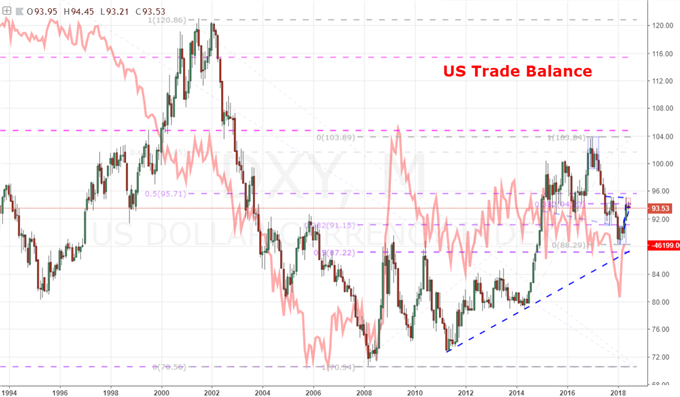
Trade Wars Represent a Systemic Risk for the Dollar
There are many things that could theoretically challenge the position and use of the US currency in the global system. A global war that arises from a diplomatic blunder, an internal political crisis that sends capital rushing for the exits or debt crisis emerging from unchecked liabilities are all technically possible but improbable. Previously, I would have considered the United States withdrawing from its position at the center of global trade and commerce equally as unlikely, but that has clearly changed over the past months. The pursuit of tariffs against China represents a considerable risk for the US as the second largest economy and largest foreign holder of Treasuries can exert considerable influence. However, far more troubling is the country's pressure on close allies. Following through on the steel and aluminum tariffs against the European Union, Canada and Mexico represents a remarkably belligerent stance on trade relations. What is strategically problematic for the US with this push is the likelihood that a greater segment of the world market will work together to circumvent and perhaps even penalize the instigator for this unwanted pressure.
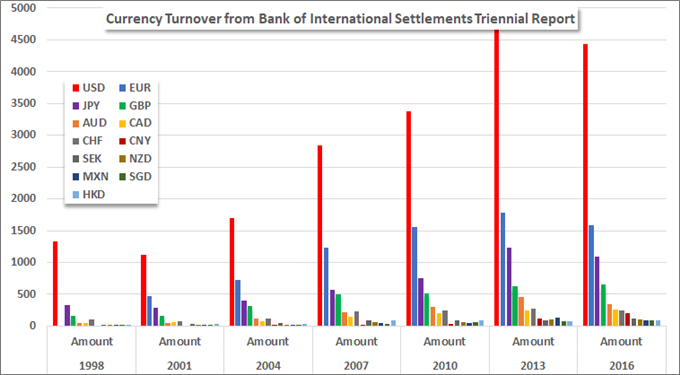
What Does a Loss of Reserve Status Mean?
Whether the intention is to simply compensate for the economic damage done to their country or to retaliate, the net effect will of a response by the United States peers and competitors will be a reduction in the purchase of Dollars. That is natural byproduct of a reduction in consumption of US goods that require the local currency. Yet, a more troubling side effect will be the establishment of direct connections to other global economies that can provide necessary substitutes and are seen as easier and more stable to deal with. China is already a great example of this opportunism as it continues to expand connection to global economies as it diversifies away from the US. As these various connections are made through natural trade of goods and services, financing and investment naturally follows. That changes the mix of needs for currency reserves and in any combination is a diversification away from the US Dollar. It is unlikely that the Greenback will relinquish its top status as it has considerable premium to burn, the government could steer out of its policies should they deliver too much pain and the agenda will naturally shift through political cycles. However, losing ground on this front carries serious ramifications for a currency too often considered incontrovertible.
